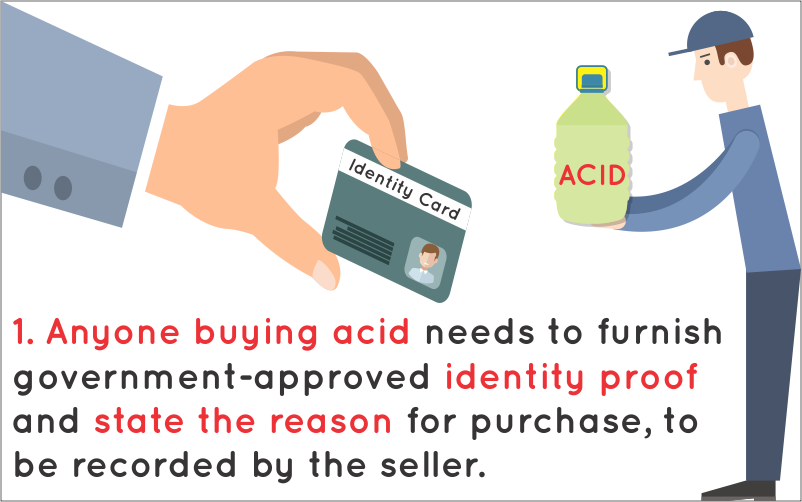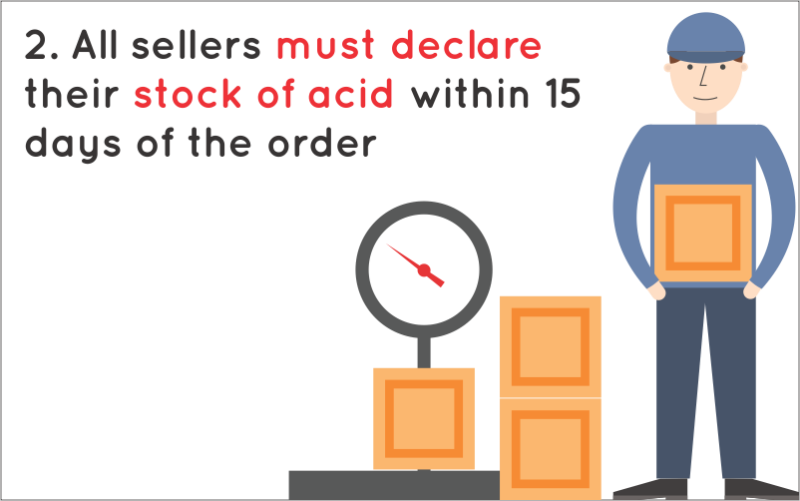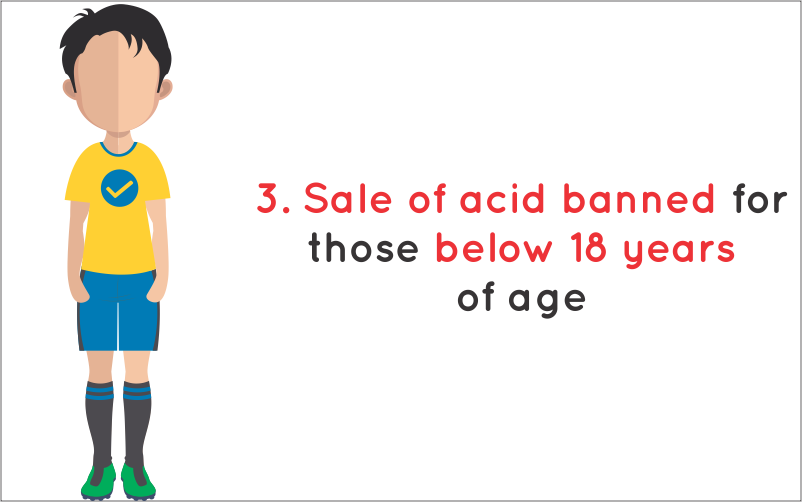Recently, Uttar Pradesh Chief Minister Yogi Adityanath directed all district magistrates to strictly enforce the rules for the storage and sale of acid, which is commonly used in attacks. All districts received a formal circular wherein it was specified that it is mandatory for all acid traders to furnish a stock report to the sub-divisional magistrates (SDMs) within 15 days. The circular, which came from Uttar Pradesh Chief Secretary Rahul Bhatnagar, said:
“If during inspection by the SDM, it is found incorrect report has been submitted, then the entire stock be sealed, and Rs 50,000 (US$775) penalty will be imposed on the seller.”


Recently, a new law put acid attack survivors under the new Disability Act. There are several rules pertaining to sale, purchase and stocking of acids.
Acid throwing, also called an acid attack, is a form of violent assault defined as the act of throwing acid or a similarly corrosive substance onto the body of another “with the intention to disfigure, maim, torture, or kill.” Perpetrators of these attacks throw acid at their victims, usually at their faces, burning them, and damaging skin tissue, often exposing and sometimes dissolving the bones.


The long term consequences of these attacks may include blindness, as well as permanent scarring of the face and body, along with far-reaching social, psychological, and economic difficulties. The reasons for this kind of attack are many- conflicts in intimate relationships, sexual rejection, gang wars, property wars and may have political and religious motives. Since the 1990s, Bangladesh has been reporting the highest number of attacks and highest incidence rates for women, with 3,512 Bangladeshi people acid attacked between 1999 and 2013. According to National Crime Records Bureau (NCRB) data from 2014, Delhi, with 20 incidences of acid attacks figures as the third state with highest cases after West Bengal and Uttar Pradesh.


In 2015, Acid Survivor Foundation of India recorded 249 attacks nationwide, an 11 percent increase from the previous year. This number, however, is likely to be an underestimation as they rely on a network of survivors and hospitals to gather the data. The state of Uttar Pradesh alone makes up 24 percent of the national total in 2015.


There are several laws around the issue, and several compensation schemes available for acid attack victims. While many organizations like Acid Survivors Foundation India (AFSI) and Stop Acid Attacks work for the prevention of this heinous crime, and focus on rehabilitation of survivors, stringent laws revolving around sale and purchase of acid must be reinforced, and heavy penalties must be imposed for any deviation from these. Similarly, a stronger system of counselling and rehabilitating survivors and their families must be put into place, so as to enable better quality of living.


We are heartened by news of these regulations, and hope that these laws are implemented strictly, and those defying them are penalized. It is time for central and state governments to take stringent actions to end this heinous crime.





